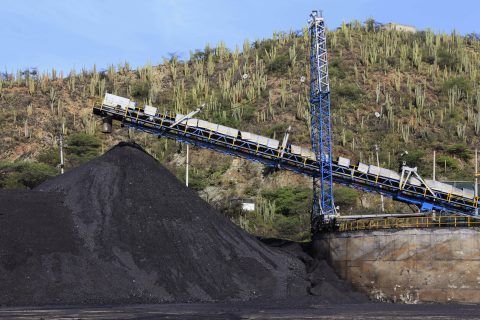Mukhtar Babayev is the COP29 President-Designate and Azerbaijan’s Minister of Ecology and Natural Resources.
This week, the COP29 Presidency of Azerbaijan is hosting a series of crunch climate negotiations in Baku across both technical and political tracks of the UN talks. These discussions represent a pivotal moment in the lead-up to the COP29 summit – which is itself a litmus test for the global fight against climate change.
The urgency of the moment is clear. In the first six months after COP28, extreme weather caused $41 billion of damage. Property and economic losses from Hurricane Helene in the US alone may now reach as high as $250 billion. The cost of inaction is rising rapidly, underscoring the need for decisive action.
Accelerating the interplay between the technical and political tracks of the UN climate negotiations is critical because technical progress informs political decisions, while political will enables technical breakthroughs.
The “Pre-COP” week began with progress on the technical work needed to agree on and establish Article 6 at COP29, the basis for implementing effective carbon markets, which could provide up to $250 billion of annual efficiency savings by 2030 in the identification and rollout of climate mitigation projects.
On the political front, the COP29 Presidency has appointed ministerial and high-level pairs across key areas including the New Collective Quantified Goal (NCQG) for climate finance, Article 6, adaptation, mitigation, and transparency. The High-Level Ministerial Dialogue on the NCQG and political engagements around this week’s meeting serve as crucial junctures where technical expertise and political will converge.
Climate finance enables climate action
The NCQG remains the top negotiating priority for the COP29 Presidency. It is essential for enabling climate action, particularly for developing nations, and must address both the urgency and scale of the problem. Transparency is equally crucial, aligning with the commitments made in the Paris Agreement..
There are encouraging signs of growing convergence on several critical issues. These glimmers of hope must be nurtured and expanded upon. The pursuit of an ideal climate finance goal should not prevent agreement on a goal that everyone can own and implement.
Progress on structure for new global climate finance goal but trickier divides persist
As we approach COP29, it is essential to elevate political engagement to the highest levels. Climate change touches every aspect of governance and society. Therefore, all relevant government ministries must be involved, from finance and energy to agriculture and health.
Moreover, heads of state and government must be fully engaged and committed to this process. This is essential for climate ministers to secure the mandates they need for the breakthroughs they must deliver.
Central to all discussions is how to take further the outcome of the First Global Stocktake of climate action agreed upon at COP28. This includes making swift progress across all pillars of climate action.
We need to work together to deliver fair and ambitious climate finance first and foremost. We also need to build resilience swiftly and reduce emissions at pace to keep the 1.5C global warming goal within reach. This includes contributing to transitioning away from fossil fuels in energy systems, in a just, orderly and equitable manner, as governments agreed to do at COP28 last year.
Though we have varying starting points, national circumstances and approaches, real change starts locally and with us, by devoting to climate action as a common commitment. Every contribution counts.
Collective endeavour
The COP29 Presidency is leading the way and actively working on Azerbaijan’s updated Nationally Determined Contribution (NDC) in line with the 1.5C goal, and we are grateful to be joined in this commitment by our Troika partners from the UAE and Brazil.
The COP29 Presidency is also focusing on turning pledges into concrete actions. There is an urgent need for signed contributor agreements for the Fund for responding to Loss and Damage, as well as significantly greater contributions to all funds, including the Green Climate Fund and the Adaptation Fund.
The timely submission of NDCs, National Adaptation Plans (NAPs), and Biennial Transparency Reports (BTRs) on greenhouse gas emissions will be essential to enhancing ambition across all pillars of the Paris Agreement.
In the coming days, the COP29 Presidency will publish the program for Presidency-led and hosted events at COP29, as well as the final versions of the COP29 declarations. These will provide further opportunities for engagement and action outside the formal negotiations.
The world is watching, and history will judge us on the outcomes. Azerbaijan will do everything in its power to play its role as a bridge between nations. But governments are the ones who must walk across that bridge.
Success or failure at COP29 will be collective – and we must all offer the best of ourselves to meet this monumental challenge.
As we engage in these crucial talks, all parties must consider how they can move closer together. Because together, we can pave the way for a successful COP29 where we enhance ambition and enable action. We can invest today to save tomorrow.
The post How the world can set itself up for success at COP29 appeared first on Climate Home News.
Climate Change
Big fishing nations secure last-minute seat to write rules on deep sea conservation
As a treaty to protect the High Seas entered into force this month with backing from more than 80 countries, major fishing nations China, Japan and Brazil secured a last-minute seat at the table to negotiate the procedural rules, funding and other key issues ahead of the treaty’s first COP.
The Biodiversity Beyond National Jurisdiction (BBNJ) pact – known as the High Seas Treaty – was agreed in 2023. It is seen as key to achieving a global goal to protect at least 30% of the planet’s ecosystems by 2030, as it lays the legal foundation for creating international marine protected areas (MPAs) in the deep ocean. The high seas encompass two-thirds of the world’s ocean.
Last September, the treaty reached the key threshold of 60 national ratifications needed for it to enter into force – a number that has kept growing and currently stands at 83. In total, 145 countries have signed the pact, which indicates their intention to ratify it. The treaty formally took effect on January 17.
“In a world of accelerating crises – climate change, biodiversity loss and pollution – the agreement fills a critical governance gap to secure a resilient and productive ocean for all,” UN Secretary-General António Guterres said in a statement.
Julio Cordano, Chile’s director of environment, climate change and oceans, said the treaty is “one of the most important victories of our time”. He added that the Nazca and Salas y Gómez ridge – off the coast of South America in the Pacific – could be one of the first intact biodiversity hotspots to gain protection.
Scientists have warned the ocean is losing its capacity to act as a carbon sink, as emissions and global temperatures rise. Currently, the ocean traps around 90% of the excess planetary heat building up from global warming. Marine protected areas could become a tool to restore “blue carbon sinks”, by boosting carbon absorption in the seafloor and protecting carbon-trapping organisms such as microalgae.
Last-minute ratifications
Countries that have ratified the BBNJ will now be bound by some of its rules, including a key provision requiring countries to carry out environmental impact assessments (EIA) for activities that could have an impact on the deep ocean’s biodiversity, such as fisheries.
Activities that affect the ocean floor, such as deep-sea mining, will still fall under the jurisdiction of the International Seabed Authority (ISA).
Nations are still negotiating the rules of the BBNJ’s other provisions, including creating new MPAs and sharing genetic resources from biodiversity in the deep ocean. They will meet in one last negotiating session in late March, ahead of the treaty’s first COP (conference of the parties) set to take place in late 2026 or early 2027.
China and Japan – which are major fishing nations that operate in deep waters – ratified the BBNJ in December 2025, just as the treaty was about to enter into force. Other top fishing nations on the high seas like South Korea and Spain had already ratified the BBNJ last year.
Power play: Can a defensive Europe stick with decarbonisation in Davos?
Tom Pickerell, ocean programme director at the World Resources Institute (WRI), said that while the last-minute ratifications from China, Japan and Brazil were not required for the treaty’s entry into force, they were about high-seas players ensuring they have a “seat at the table”.
“As major fishing nations and geopolitical powers, these countries recognise that upcoming BBNJ COP negotiations will shape rules affecting critical commercial sectors – from shipping and fisheries to biotechnology – and influence how governments engage with the treaty going forward,” Pickerell told Climate Home News.
Some major Western countries – including the US, Canada, Germany and the UK – have yet to ratify the treaty and unless they do, they will be left out of drafting its procedural rules. A group of 18 environmental groups urged the UK government to ratify it quickly, saying it would be a “failure of leadership” to miss the BBNJ’s first COP.
Finalising the rules
Countries will meet from March 23 to April 2 for the treaty’s last “preparatory commission” (PrepCom) session in New York, which is set to draft a proposal for the treaty’s procedural rules, among them on funding processes and where the secretariat will be hosted – with current offers coming from China in the city of Xiamen, Chile’s Valparaiso and Brussels in Belgium.
Janine Felson, a diplomat from Belize and co-chair of the “PrepCom”, told journalists in an online briefing “we’re now at a critical stage” because, with the treaty having entered into force, the preparatory commission is “pretty much a definitive moment for the agreement”.
Felson said countries will meet to “tidy up those rules that are necessary for the conference of the parties to convene” and for states to begin implementation. The first COP will adopt the rules of engagement.
She noted there are “some contentious issues” on whether the BBNJ should follow the structure of other international treaties such as the Convention on Biological Diversity (CBD), as well as differing opinions on how prescriptive its procedures should be.
“While there is this tension on how far can we be held to precedent, there is also recognition that this BBNJ agreement has quite a bit to contribute in enhancing global ocean governance,” she added.
The post Big fishing nations secure last-minute seat to write rules on deep sea conservation appeared first on Climate Home News.
Big fishing nations secure last-minute seat to write rules on deep sea conservation
Climate Change
Climate at Davos: Energy security in the geopolitical driving seat
The annual World Economic Forum got underway on Tuesday in the Swiss ski resort of Davos, providing a snowy stage for government and business leaders to opine on international affairs. With attention focused on the latest crisis – a potential US-European trade war over Greenland – climate change has slid down the agenda.
Despite this, a number of panels are addressing issues like electric vehicles, energy security and climate science. Keep up with top takeaways from those discussions and other climate news from Davos in our bulletin, which we’ll update throughout the day.
From oil to electrons – energy security enters a new era
Energy crises spurred by geopolitical tensions are nothing new – remember the 1970s oil shock spurred by the embargo Arab producers slapped on countries that had supported Israel during the Yom Kippur War, leading to rocketing inflation and huge economic pain.
But, a Davos panel on energy security heard, the situation has since changed. Oil now accounts for less than 30% of the world’s energy supply, down from more than 50% in 1973. This shift, combined with a supply glut, means oil is taking more of a back seat, according to International Energy Agency boss Fatih Birol.
Instead, in an “age of electricity” driven by transport and technology, energy diplomacy is more focused on key elements of that supply chain, in the form of critical minerals, natural gas and the security buffer renewables can provide. That requires new thinking, Birol added.
“Energy and geopolitics were always interwoven but I have never ever seen that the energy security risks are so multiplied,” he said. “Energy security, in my view, should be elevated to the level of national security today.”
In this context, he noted how many countries are now seeking to generate their own energy as far as possible, including from nuclear and renewables, and when doing energy deals, they are considering not only costs but also whether they can rely on partners in the long-term.
In the case of Europe – which saw energy prices jump after sanctions on Russian gas imports in the wake of Moscow’s invasion of Ukraine – energy security rooted in homegrown supply is a top priority, European Commission President Ursula von der Leyen said in Davos on Tuesday.
Outlining the bloc’s “affordable energy action plan” in a keynote speech at the World Economic Forum, she emphasised that Europe is “massively investing in our energy security and independence” with interconnectors and grids based on domestically produced sources of power.
The EU, she said, is trying to promote nuclear and renewables as much as possible “to bring down prices and cut dependencies; to put an end to price volatility, manipulation and supply shocks,” calling for a faster transition to clean energy.
“Because homegrown, reliable, resilient and cheaper energy will drive our economic growth and deliver for Europeans and secure our independence,” she added.
Comment – Power play: Can a defensive Europe stick with decarbonisation in Davos?
AES boss calls for “more technical talk” on supply chains
Earlier, the energy security panel tackled the risks related to supply chains for clean energy and electrification, which are being partly fuelled by rising demand from data centres and electric vehicles.
The minerals and metals that are required for batteries, cables and other components are largely under the control of China, which has invested massively in extracting and processing those materials both at home and overseas. Efforts to boost energy security by breaking dependence on China will continue shaping diplomacy now and in the future, the experts noted.
Copper – a key raw material for the energy transition – is set for a 70% increase in demand over the next 25 years, said Mike Henry, CEO of mining giant BHP, with remaining deposits now harder to exploit. Prices are on an upward trend, and this offers opportunities for Latin America, a region rich in the metal, he added.
At ‘Davos of mining’, Saudi Arabia shapes new narrative on minerals
Andrés Gluski, CEO of AES – which describes itself as “the largest US-based global power company”, generating and selling all kinds of energy to companies – said there is a lack of discussion about supply chains compared with ideological positioning on energy sources.
Instead he called for “more technical talk” about boosting battery storage to smooth out electricity supply and using existing infrastructure “smarter”. While new nuclear technologies such as small modular reactors are promising, it will be at least a decade before they can be deployed effectively, he noted.
In the meantime, with electricity demand rising rapidly, the politicisation of the debate around renewables as an energy source “makes no sense whatsoever”, he added.
The post Climate at Davos: Energy security in the geopolitical driving seat appeared first on Climate Home News.
Climate at Davos: Energy security in the geopolitical driving seat
Climate Change
A Record Wildfire Season Inspires Wyoming to Prepare for an Increasingly Fiery Future
As the Cowboy State faces larger and costlier blazes, scientists warn that the flames could make many of its iconic landscapes unrecognizable within decades.
In six generations, Jake Christian’s family had never seen a fire like the one that blazed toward his ranch near Buffalo, Wyoming, late in the summer of 2024. Its flames towered a dozen feet in the air, consuming grassland at a terrifying speed and jumping a four-lane highway on its race northward.
A Record Wildfire Season Inspires Wyoming to Prepare for an Increasingly Fiery Future
-
Greenhouse Gases5 months ago
Guest post: Why China is still building new coal – and when it might stop
-
Climate Change5 months ago
Guest post: Why China is still building new coal – and when it might stop
-

 Greenhouse Gases2 years ago
Greenhouse Gases2 years ago嘉宾来稿:满足中国增长的用电需求 光伏加储能“比新建煤电更实惠”
-
Climate Change2 years ago
Spanish-language misinformation on renewable energy spreads online, report shows
-
Climate Change2 years ago
Bill Discounting Climate Change in Florida’s Energy Policy Awaits DeSantis’ Approval
-
Climate Change Videos2 years ago
The toxic gas flares fuelling Nigeria’s climate change – BBC News
-

 Climate Change2 years ago
Climate Change2 years ago嘉宾来稿:满足中国增长的用电需求 光伏加储能“比新建煤电更实惠”
-

 Carbon Footprint2 years ago
Carbon Footprint2 years agoUS SEC’s Climate Disclosure Rules Spur Renewed Interest in Carbon Credits








